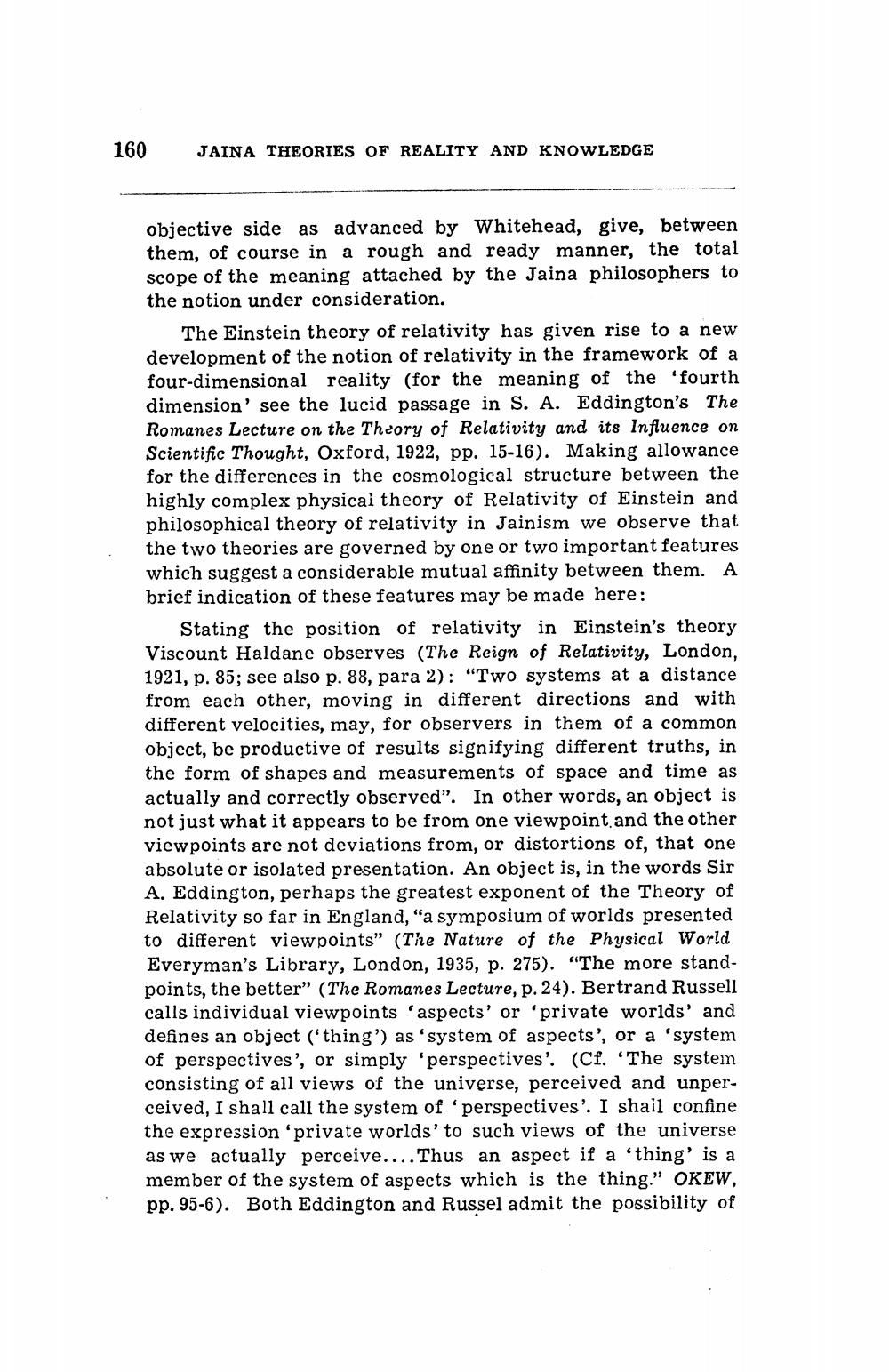________________
160
JAINA THEORIES OF REALITY AND KNOWLEDGE
objective side as advanced by Whitehead, give, between them, of course in a rough and ready manner, the total scope of the meaning attached by the Jaina philosophers to the notion under consideration.
The Einstein theory of relativity has given rise to a new development of the notion of relativity in the framework of a four-dimensional reality (for the meaning of the 'fourth dimension' see the lucid passage in S. A. Eddington's The Romanes Lecture on the Theory of Relativity and its Influence on Scientific Thought, Oxford, 1922, pp. 15-16). Making allowance for the differences in the cosmological structure between the highly complex physical theory of Relativity of Einstein and philosophical theory of relativity in Jainism we observe that the two theories are governed by one or two important features which suggest a considerable mutual affinity between them. A brief indication of these features may be made here:
Stating the position of relativity in Einstein's theory Viscount Haldane observes (The Reign of Relativity, London, 1921, p. 85; see also p. 88, para 2): "Two systems at a distance from each other, moving in different directions and with different velocities, may, for observers in them of a common object, be productive of results signifying different truths, in the form of shapes and measurements of space and time as actually and correctly observed". In other words, an object is not just what it appears to be from one viewpoint, and the other viewpoints are not deviations from, or distortions of, that one absolute or isolated presentation. An object is, in the words Sir A. Eddington, perhaps the greatest exponent of the Theory of Relativity so far in England, "a symposium of worlds presented to different viewpoints" (The Nature of the Physical World Everyman's Library, London, 1935, p. 275). "The more standpoints, the better" (The Romanes Lecture, p. 24). Bertrand Russell calls individual viewpoints 'aspects' or 'private worlds' and defines an object ('thing') as 'system of aspects', or a 'system of perspectives', or simply 'perspectives'. (Cf. 'The system consisting of all views of the universe, perceived and unperceived, I shall call the system of 'perspectives'. I shail confine the expression 'private worlds' to such views of the universe as we actually perceive.... Thus an aspect if a 'thing' is a member of the system of aspects which is the thing." OKEW, pp. 95-6). Both Eddington and Russel admit the possibility of




